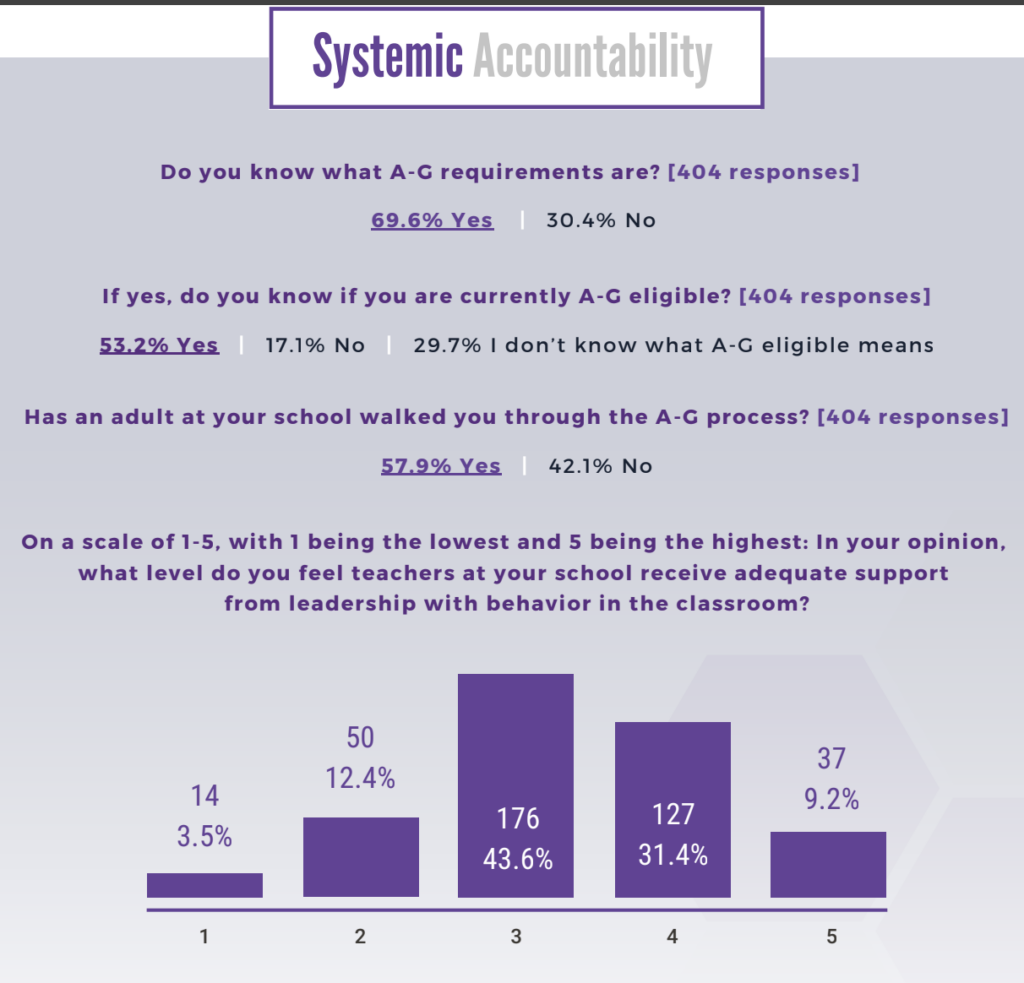Energy Convertors 2022-2023 Report is available now to download. Great School Voices is breaking down the report section by section into bite-sized pieces for you to digest. You can read the entire report here. We start with the first section of the report, Systemic Accountability.
We start with the system itself. Energy Convertors was one of the first organizations in
Oakland independently reporting out A-G rates for every public high school in the city. We
did this because we saw graduation rates for Black and Brown students praised, but A-G rates
for those same students were not even shared. There was no clear understanding of how
many Black and Brown students were graduating from high school eligible to apply to UC
and CSU schools. So we trained more than 3,000 students and 500 parents on how to check
A-G status on their own. In partnership with Families In Action, Energy Convertors created a
“Dump the D” campaign petitioning the OUSD school board and charter schools to move
away from giving students a grade allowing them to “pass” a class without gaining credit for
college for it.

Every year, Energy Convertors works to ensure students and parents are aware of A-G status
and ways to stay on top of it. Our survey asks about A-G to gauge how well the system is
spreading awareness. The district has done a better job of discussing A-G rates in recent
years, but there is still a long way to go. This is one form of accountability.
Our findings show that more students and their parents are aware of A-G requirements (70
percent) and where they stand (53 percent) than when we started collecting this data five
years ago. But almost a third (30 percent) were unaware of the requirements, 30 percent did
not know what the requirements were, while 17 percent did not know their eligibility status.
Although we have seen growth, these percentages still need to be higher — the system is still
failing students and their families. Only 58 percent of students report an adult has walked
them through the A-G process, and a considerable 42 percent have not had that support. It is
a systemic failure when many Black and Brown students graduate from Oakland schools
without being A-G eligible. As for if teachers receive support from leadership with classroom
behaviors, most students rated it at a 3 (43.6 percent) on a scale of 1 to 5, indicating moderate
support.
The students’ responses showed their concerns over a need for more awareness and
suggested potential solutions: increased educational guidance, early introduction of A-G
requirements, parental involvement, and support for teachers.


